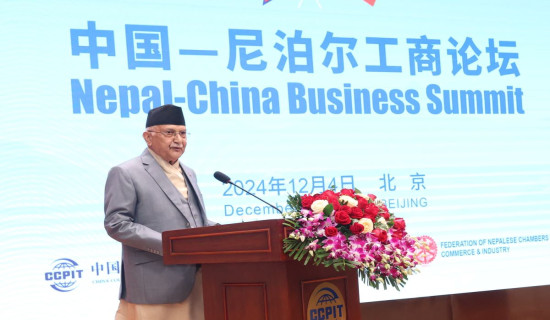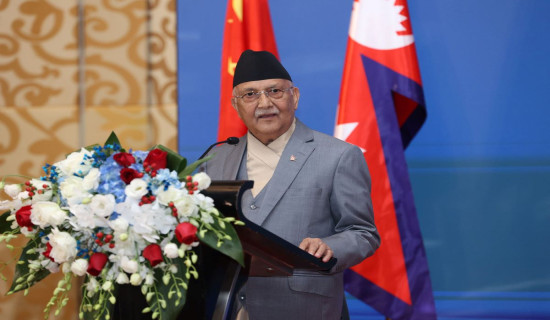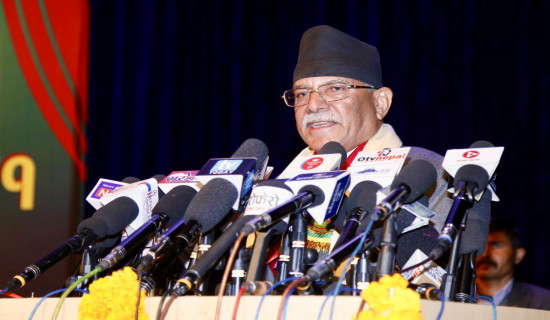- Thursday, 5 December 2024
China's expansion of visa-free circle: surge in 'travel to China' and mutual learning
Tianai Yan
Since July 2024, with the continuous expansion of China's visa-free policy and the implementation of the 72/144-hour transit visa exemption, a boom in traveling to China has emerged on foreign websites. More and more foreign tourists and bloggers have flocked to China, and the term "China Travel" has gone viral on the Internet. According to statistics, the views of the hashtag "#China Travel" have reached as high as 700 million on TikTok alone. Traveling to China has not only become a popularity password for foreign bloggers but also a stunning calling card for China to break the world's stereotyped impressions of it and showcase its image as a major power.
Against the
backdrop of the relaxation of tourism policies, the entry procedures have been
streamlined, facilitating foreign travelers coming to China. Measures such as
optimizing visa application forms, canceling visa appointments, expanding the
scope of fingerprint collection on-site and reducing visa fees have been put
into practice. All these measures have simplified the procedures for foreigners
coming to China, making their entry more efficient and convenient, fueling the
enthusiasm of foreign people to travel to China, and driving the continuous
rise in the popularity of "traveling to China".
Since the
trial implementation of the visa-free policy, the number of people has
witnessed a notable increase, which has vigorously promoted the rapid
development of international tourism and commercial exchanges. Data shows that
in the third quarter of this year, 8.186 million foreigners entered China
through various ports, a year-on-year increase of 48.8%. Among them, 4.885
million entered China through visa-free channels, a year-on-year increase of
78.6%. The increase in the number of inbound travelers has led travel agencies
both at home and abroad to expand their tourism products related to China,
effectively driving the development of cross-border tourism and expanding
economic consumption. Against the backdrop of the sluggish global economy, it
has injected new impetus into economic development. Meanwhile, the surging
number of people "traveling to China" has led to more frequent and economic
and trade exchanges, which helps attract foreign
investment and facilitate commercial exchanges, adding new vitality to the
development of international business.
More and
more foreigners have come to China and experienced its colorful charm. The
railway passing through buildings in the mountainous city of Chongqing has
drawn countless exclamations; foreign tourists wearing Hanfu stroll leisurely
along the streets in Xi'an, an ancient capital with a history of thirteen
dynasties; the dazzling night view of Shanghai's Bund brings wonderful visual
shocks; and the beautiful unique scenery of the misty and rainy Jiangnan region
demonstrates the unique Oriental aesthetics. More and more “Travel to China”
fly tickets have broken the Western stereotypes of China and reshape the image
of an open and inclusive China among the hustle and bustle of the streets and
the futuristic high-tech ambience. "Traveling to China" has also
become a bridge for cross-cultural exchanges, allowing people from all
countries to draw close to outstanding Chinese culture, break cultural
barriers, build consensus in exchanges, and achieve exchanges and mutual
learning among civilizations.
With the
increase in the number of tourists coming to China, China has also been
constantly improving the travel experiences in China, demonstrating its full
sincerity in opening up to the outside world. China UnionPay, in cooperation
with various industry players, has focused on the needs of overseas people
coming to China and comprehensively deepened the construction of payment
services in eight major consumption scenarios, namely "food, accommodation,
transportation, tourism, shopping, entertainment, medical care, and
education", to provide convenient consumption services for tourists coming
to China and create a user-friendly consumption environment. China's
telecommunications network operators have also optimized the forms of service
implementation by adding service outlets and providing foreign language
services, enabling foreign friends to access and use 5G networks more
conveniently and making the daily lives of people coming to China more
convenient and comfortable. From hardware to software, China has made great
effort to improve tourists' experiences, narrowing the distance between China
and foreign tourists.
On November
22, the Chinese Ministry of Foreign Affairs announced that it would further
implement the visa-free trial policy for holders of ordinary passports from
nine countries and extend the visa-free stay period from the current 15 days to
30 days. Up to now, nearly 40 countries have benefited from China's unilateral
visa-free policy. This move will further stimulate the enthusiasm of
international tourists to visit China and attract more foreign tourists to
come. China's inbound tourism will witness further growth. Meanwhile, this
measure is conducive to promoting economic and cultural exchanges and presenting
a real, vivid, and comprehensive image of China in all aspects, which enables
the world to gain a better understanding of China's development concepts,
cultural heritages, and the demeanor of an open and inclusive major power.
(Tianai Yan
is a scholar at Southwest University of Political Science and Law)






-original-thumb.jpg)
-square-thumb.jpg)








